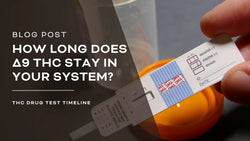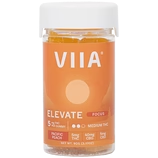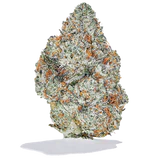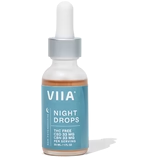 thca
thcaHow Long Does THCA Stay In Your System? - Drug Test Timeline

Post Medically Reviewed By
Dr. Denise Foster
(Article updated as of 10/20/24)
How long THCA stays in your system depends on your body chemistry, how much you've consumed, and how often you consume it. Raw THCA itself is not usually screened for in standard drug tests, and the compound can clear the body on its own anywhere from a week to 45 days after use.
THCA, in its raw, natural form, is unlikely to be detected on a standard urine test because it isn’t illegal. However, once exposed to heat, THCA transforms into THC, making it detectable for drug testing.
THCA's unique properties allow for consumption in its raw form, preserving its integrity as a non-psychoactive cannabinoid or the option to transform it into THC, offering many a potential legal pathway to experience the psychoactive effects of cannabis.
Learn how cannabinoids are absorbed, metabolized, and detected in most drug tests.
We'll also compare long-term cannabis use with short-term and how this can affect the amount of time THCA and other cannabinoids remain in your body fat, even after the potential benefits have worn off.
Will THCA Show Up On A Drug Test?
It depends on the type of drug test used, but typically, raw cannabis consumption like THCA isn't something that's tested for because it's not illegal or psychoactive.
However, the moment you expose your THCA to heat, it transforms into THC.
At this point, it doesn't matter whether or not your THCA came from a legal hemp source. The body will break down the THC into THC metabolites (THC-COOH), which will trigger a positive THC test.
In rare circumstances, some drug tests may potentially cross-react, creating false positive test results as cannabinoid metabolites may look very similar.
How Long Does THCA Stay In Your System?
There isn't a definitive answer to the amount of time it takes THCA to leave your body. The duration for which THCA or any other cannabinoid stays in your system can vary depending on several key factors:
When THCA is inhaled through smoking or vaping (after decarboxylation into THC), it enters the bloodstream directly through the lungs, leading to quicker effects and a faster metabolism. However, because it transforms into THC, the resulting metabolites (THC-COOH) can be detected, especially in urine and hair tests.

Why THCA Isn't Typically Detected in Drug Tests (Unless Heated)?
THCA doesn't have psychoactive properties, and it's not illegal.
Given that urine drug screens are the most common form of drug testing for substance abuse, THCA itself isn't screened in standard drug tests, so if you've been consuming raw cannabis products high in THCA, you're probably in the clear.
These tests primarily focus on detecting THC and its metabolite, THC-COOH, as indicators of cannabis use.
That being said, this is another story if you're smoking THCA prerolls, vape products, or concentrates. Remember, heating THCA transforms THCA into THC, creating THC metabolites that can be detected in blood, urine, and saliva tests.
Understanding THCA and THC Differences
When it comes to consuming THCA, you have two primary options:
- Consuming THCA products in their raw form: As long as the cannabinoid has not been exposed to heat and undergone decarboxylation, the THCA remains non-psychoactive and will not produce intoxicating effects. Raw THCA can be found in fresh cannabis flowers and products like tinctures or THCA gummies made from unheated hemp buds.
- Subjecting THCA to heat to transform it into the psychoactive THC: The other option is to apply heat to the cannabis product to temperatures between 200°–250°F (93-121°C). Heat causes THCA to lose a carboxyl group and transforms it into THC, which is the primary psychoactive cannabinoid.
These two consumption methods create very distinct experiences with cannabis and may also affect how the cannabinoids are absorbed and metabolized in the body, influencing its detection on drug tests.
Metabolism Of THCA In The Body
There are three primary routes of absorption for cannabinoids:
- Oral ingestion: When THCA is consumed orally as raw cannabis juice, THCA gummies, or other edibles.
In this form of ingestion, THCA passes through the stomach and intestines, where digestive enzymes break it down before it's absorbed into the bloodstream through the intestinal walls. It eventually reaches various tissues and organs to exert its potential effects.
- Sublingual absorption: This typically involves placing THCA tinctures or oils under the tongue. The sublingual mucosa, consisting of thin tissues and abundant blood vessels, allows for the direct absorption of THCA into the bloodstream. This bypasses the digestive system, leading to a faster onset of effects and a higher concentration of THCA delivered than oral ingestion.
- Inhalation: Inhalation methods such as smoking THCA Flower or pre-rolls will transform THCA into THC. The lung tissue contains a large surface area of blood vessels, allowing for efficient absorption of THC into the bloodstream.
Once THCA and other cannabinoids are in the body, they primarily interact with the endocannabinoid system to exert their effects.
The effects of cannabinoids can last anywhere from a couple of hours to eight hours, depending on how much was consumed and the individual's metabolism. Once the effects are worn off, the body eliminates the cannabinoids.
Cannabis metabolites are byproducts of the active cannabinoids formed through the body's processing and transformation of the substances to facilitate their elimination. During this process, liver enzymes and other tissues break down the cannabinoid into different compounds, forming metabolites.
These inactive metabolites are stored in fatty tissues and gradually eliminated with urine. It's these metabolites that are detected for the presence of cannabis use in drug tests.
How Long Is The THC Metabolite Detected For?

Certain drug screenings can detect THC metabolites for a period of one to two weeks, whereas more sensitive screenings can identify trace compounds for as long as three months.
According to a clinical review of cannabis users in urine testing, how long THC metabolites remain in the body depends on the frequency of use [1]:
- One time: 3 to 5 days
- Moderate user (four times per week): 5 to 7 days
- Chronic users (daily): 10 to 15 days
- Chronic heavy users (multiple times per day): more than 30 days
This is just a rough guideline and shouldn’t be the only indicator of how long THC can be detected on drug tests. As we’ve mentioned, one’s metabolism, hydration levels, and specific testing methods can influence the detection window for THC metabolites.
So, if you're thinking you can use hemp-derived THCA smokable products to pass a drug test, we urge you to reconsider.
THCA is non-psychoactive, and its consumption may not produce the same immediate effects as THC, but once you heat it, it will become THC.
Prioritize your personal and professional obligations and make informed decisions about substance use, especially regarding employment or legal situations involving drug testing.
Different Types Of Drug Tests And Their Sensitivity To THCA and THC
When it comes to drug testing, different types of tests have varying sensitivities to other substances, including cannabinoids. Raw THCA is highly unlikely to produce a positive drug test, but these tests can detect THC.
Here are some common drug testing methods and their general sensitivity to cannabinoids.
1. Urine Test
Urine drug tests are the most common form of drug screening employers and other organizations use because they're cheap, generally noninvasive, and reasonably accurate. Standard urine tests typically target the detection of THC-COOH, the metabolite of THC, rather than THCA itself. Cannabinoids are stored in body fat and gradually released over time for a longer detection window.
THCA is not the primary focus of urine drug tests, but it does a relatively good job of detecting THC metabolites.
- Occasional Users: 3 to 5 days after use.
- Moderate Users (2-4 times per week): Up to 7-10 days.
- Regular Users (daily): 10 to 15 days.
- Heavy Users (multiple times per day): 30 days or more.
2. Blood Test
Blood tests are less common for routine drug screening but may be used in specific situations, such as DUI investigations. Blood tests have a shorter detection window compared to urine tests and are more likely to detect recent cannabis use. This is because cannabinoids are quickly metabolized and cleared from the blood, making it better at detecting recent use.
Similar to urine tests, blood tests primarily focus on THC and its metabolites rather than THCA itself.
- Occasional Users: 1 to 2 days.
- Frequent Users: Up to 7 days.
3. Saliva Test
Saliva tests are becoming popular due to their noninvasive nature and ease of administration. They are typically used to detect recent drug use, and their sensitivity to THCA is generally similar to that of blood tests.
The detection window for THC and its metabolites in saliva is relatively short, usually within a few hours to a few days after use.
- Occasional Users: 24 to 72 hours after use.
- Frequent Users: Up to 1 week.
4. Hair Testing
Hair tests are less standard for detecting recent drug use but can provide a longer detection window for long-term drug use patterns. They typically do a good job of detecting the presence of THC. THC metabolites can be incorporated into hair follicles and remain detectable as the hair grows, providing a historical record of use.
However, the sensitivity of hair tests to THCA can vary, and more research is needed to determine their accuracy in detecting THCA use.
- All Users: Up to 90 days.
5. Breath Test
A breath test for cannabis detection is similar to alcohol breathalyzers. Instead of alcohol, this test can detect delta 9 THC metabolites after short-time use, especially in drivers who consume cannabis before getting behind the wheel [2].
Since the ‘cannalyzer’ is only testing for the THC metabolite, people who use CBD won’t blow a false positive for THC like they might with a device that’s based on an alcohol breathalyzer.
In cases where suspected cannabis use leads to impairment, blood testing has been the gold standard. Still, this form of drug screening is inadequate for establishing recent cannabis use within the 3-hour impairment window.
Typically, blood samples are not collected until approximately 1.5 to 4 hours following a traffic stop or motor vehicle accident, in which THC concentrations may have already fallen to very low or undetectable levels.
On top of this, current testing approaches use just one blood draw at one point in time, which will, at best, provide a single measure of THC metabolite concentrations. This is problematic because recent research has shown that there is no meaningful correlation between impairment and THC blood levels.
Breath testing for THC metabolites can more readily detect current use, which can then be correlated to blood levels based on impairment behavior and provide a more comprehensive judgment about whether or not an individual is impaired while using cannabis.
Using the cannalyzer testing method, an individual will test positive for recent THC use within the first hour after smoking, which is the time of peak impairment. Studies have shown that pre-smoking cannabis outside the 3-hour impairment window will not test positive for THC metabolites, indicating no false positive test results outside of this timeframe [3].
Expect to see this cannalyzer technology being implemented soon in states that have legalized cannabis as a way to rapidly detect cannabis use that correlates with impairment and as a means to support safety in the workplace and on the road.
- All Users: Up to 1 to 3 hours after smoking or vaping.
Can You Quickly Detox THC Metabolites To Pass A Drug Test?
If you're concerned about your marijuana use or have accidentally consumed carboxylated THCA, and are worried about a positive drug test, you might have done some research on herbal supplements that promise to help you detox THC or other drugs from your body quickly.
The only reliable way to eliminate the metabolite THC-COOH from your body is by abstaining from drug exposure and time.
It can take anywhere from several days to 4–5 weeks for your body to clear THC metabolites.
While some suggestions such as staying hydrated, engaging in exercise, and using detox products claim to assist in diluting urine, burning stored THC in fat cells, or enhancing the body's detoxification process, there's limited scientific evidence substantiating their effectiveness in helping you pass a drug test.
While some people may have found these strategies helpful, relying solely on them is not a reliable approach to ensuring a negative drug test result.
Recap: How Long Does THCA Stay In Your System?
The exact duration of THCA's presence in the body of chronic cannabis users remains uncertain, as limited research has focused specifically on THCA elimination. However, based on available information about cannabinoids like THC and CBD, we can make some assumptions.
THCA itself is not typically screened in drug tests, which primarily target THC. The metabolism and elimination of THC and its metabolites can vary depending on the frequency of use, dosage, individual metabolism, and the type of drug test employed.
If drug testing is a concern, we recommend abstaining from using any cannabis-derived products, including those containing THCA, for a sufficient period before the test.
Seeking guidance from healthcare professionals or experts can provide personalized advice and ensure you make informed decisions based on your situation.
Resources:
- Moeller, K. E., Kissack, J. C., Atayee, R. S., & Lee, K. C. (2017, May). Clinical interpretation of urine drug tests: what clinicians need to know about urine drug screens. In Mayo Clinic Proceedings (Vol. 92, No. 5, pp. 774-796). Elsevier.
- Brogan, M. K. (n.d.). VCU forensic science professor hopes a better THC breathalyzer will increase road safety. VCU News. Retrieved December 3, 2023, from https://news.vcu.edu/article/2023/08/vcu-forensic-science-professor-hopes-a-better-thc-breathalyzer-will-increase-road-safety
- DeGregorio MW, Wurz GT, Montoya E, Kao CJ. A comprehensive breath test that confirms recent use of inhaled cannabis within the impairment window. Sci Rep. 2021 Nov 23;11(1):22776. doi: 10.1038/s41598-021-02137-x. PMID: 34815467; PMCID: PMC8611040.









